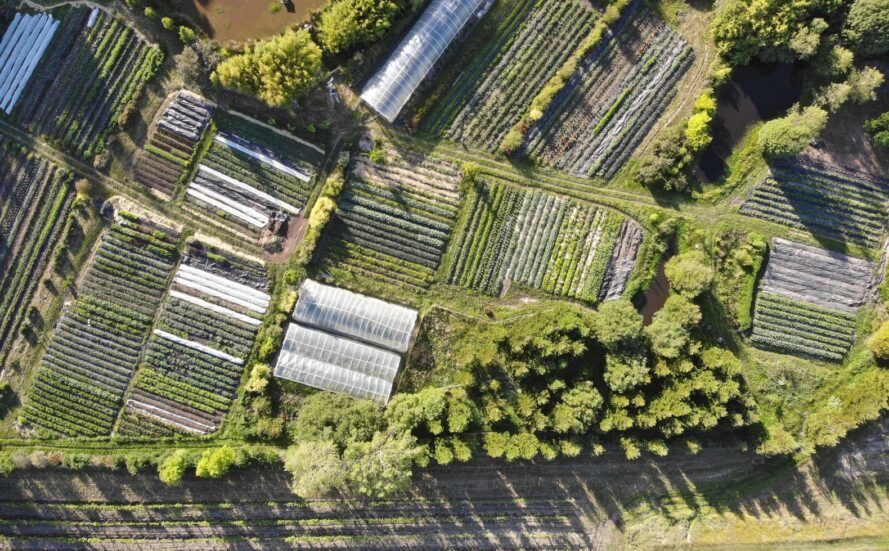When it comes to the farm, there’s a thin line between soil and dirt
The farm industry has been neglectfully stripping the soil of essential nutrients for generations
The following written content from Dawn Hammon

But now we know, and modern farmers like those at Singing Frogs Farm are reestablishing how our crops are grown, benefiting the environment, community and local economy.
Located in Sebastopol, California, the 8.8-acre farm and surrounding area was originally managed in the hands of the Kashaya Pomo and Coastal Miwok Peoples. Current owners Elizabeth and Paul Kaiser honor the land through regenerative farming practices, and protecting the long-standing native basket grasses the Indigenous people used for making water-tight baskets.
The Kaisers developed Singing Frogs Farm after meeting in the Peace Corps in West Africa. The duo pursued hands-on experience and university degrees in tropical agroforestry, natural resource management, international development and public health while working in varied locations around the world. After marrying, they returned to their roots in Sonoma to start the farm.
Singing Frogs Farm is an example of everything regenerative agriculture can offer — productive crops, healthy soil, year-round (rather than seasonal) jobs and, of course, food and flowers that are organically grown.

The farm reports a five-fold increase in the organic matter of the soil. Obviously, nutrients are good for plants, but they’re essential for maintaining the integrity of the soil too. Once lost, plantable soil becomes dirt. Crops don’t grow in dirt. In theory, the process is simple: support the land and it provides in return.
At Singing Frogs Farm, they are dedicated to not using any sprays of any kind, even those labeled as organic. Instead, they rely on the natural cycle of the ecological system. In a nutshell, the right plant selections attract healthy, hungry insects that feed on the farm’s problem insects, therefore creating a natural insecticide with no chemicals. Because the soil is rich and nourished, there’s no need for fertilizers either.
As a vegetable and flower farm, the native plant choices also attract and support a wide variety of pollinators, increasing native bee and bird populations. In fact, incorporating animals into the cycle of crop development is one of the five foundational philosophies of the farm. The other four are: minimal soil disturbance, high yield of living plants at all times, plant diverse varieties and keep the soil covered. Read more from Inhabitat





